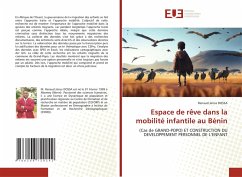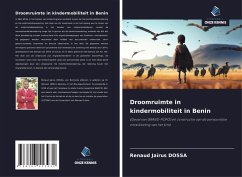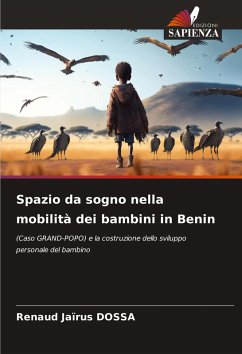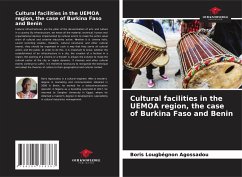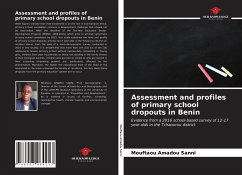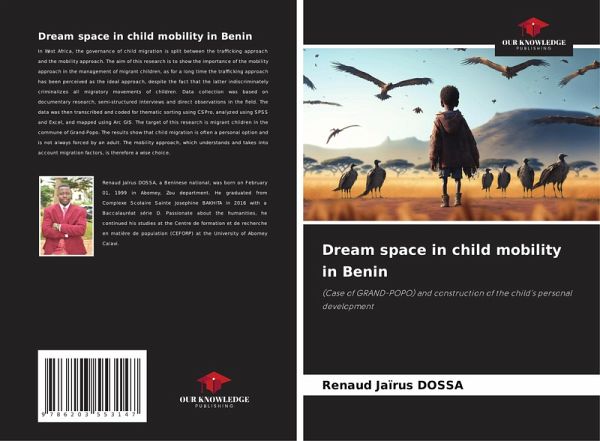
Dream space in child mobility in Benin
(Case of GRAND-POPO) and construction of the child's personal development
Versandkostenfrei!
Versandfertig in 6-10 Tagen
29,99 €
inkl. MwSt.

PAYBACK Punkte
15 °P sammeln!
In West Africa, the governance of child migration is split between the trafficking approach and the mobility approach. The aim of this research is to show the importance of the mobility approach in the management of migrant children, as for a long time the trafficking approach has been perceived as the ideal approach, despite the fact that the latter indiscriminately criminalizes all migratory movements of children. Data collection was based on documentary research, semi-structured interviews and direct observations in the field. The data was then transcribed and coded for thematic sorting usi...
In West Africa, the governance of child migration is split between the trafficking approach and the mobility approach. The aim of this research is to show the importance of the mobility approach in the management of migrant children, as for a long time the trafficking approach has been perceived as the ideal approach, despite the fact that the latter indiscriminately criminalizes all migratory movements of children. Data collection was based on documentary research, semi-structured interviews and direct observations in the field. The data was then transcribed and coded for thematic sorting using CSPro, analyzed using SPSS and Excel, and mapped using Arc GIS. The target of this research is migrant children in the commune of Grand-Popo. The results show that child migration is often a personal option and is not always forced by an adult. The mobility approach, which understands and takes into account migration factors, is therefore a wise choice.





